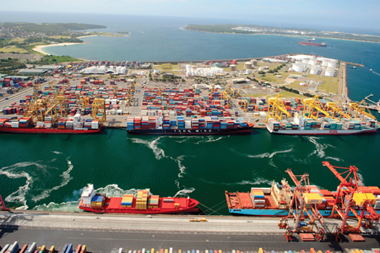China Investment Corporation (CIC), Korea’s National Pension Scheme (NPS) and the California Public Employees’ Retirement System (CalPERS) have emerged as members of the consortium behind the acquisition of Australia’s largest container port.
The three institutions are understood to be part of the Lonsdale Consortium that is acquiring the Port of Melbourne for AUD9.7bn (€6.56bn) from the Victorian government.
CIC, NPS and CalPERS are investing alongside Australian institutions Future Fund and Queensland Investment Corporation (QIC), which led the successful bid, and north American investors Global Infrastructure Partners (GIP) and Ontario Municipal Employees Retirement System (OMERS).
According to a source, GIP has a 40% stake in Lonsdale, which it has split equally with CIC and NPS, both of which are existing investors in one of its funds.
It has been reported that NPS has committed up to AUD500m for the investment, while CIC’s involvement could be as high as AUD2bn.
The investment by CalPERS was carried out by QIC, which was awarded a mandate by the US pension fund last May to invest in infrastructure in Asia-Pacific.
QIC will also manage the Future Fund’s investment in the Victorian port, which is the largest container port and the largest automobile port in Australia. QIC and the Future Fund each have have a 20% stake each.
The remaining 20% is held by OMERS.
The Lonsdale consortium will be funded by a syndicate of banks, which are providing a debt facility of around AUD4bn. The balance is coming from equity committed by the investors.
Lonsdale edged out its bid competitor, led by IFM Investors, by just AUD15m.
The final price was significantly higher than the AUD6bn originally thought to be the port’s value.
Even at AUD6bn, some infrastructure managers had believed the value might be diluted by recent restrictive regulations put in place by the Victorian government, including a cap on increases in port charges.
But the Lonsdale consortium, which paid more than 25 times earnings multiples, believe the price is worth paying to secure what is one of a number of rare ‘landlord ports’.
Australia’s foreign investment watchdog, the Foreign Investment Review Board, last week granted “conditional approval” for the offshore investors to buy the port lease.
Australia last month controversially blocked two Chinese companies from buying the country’s largest electricity network.










